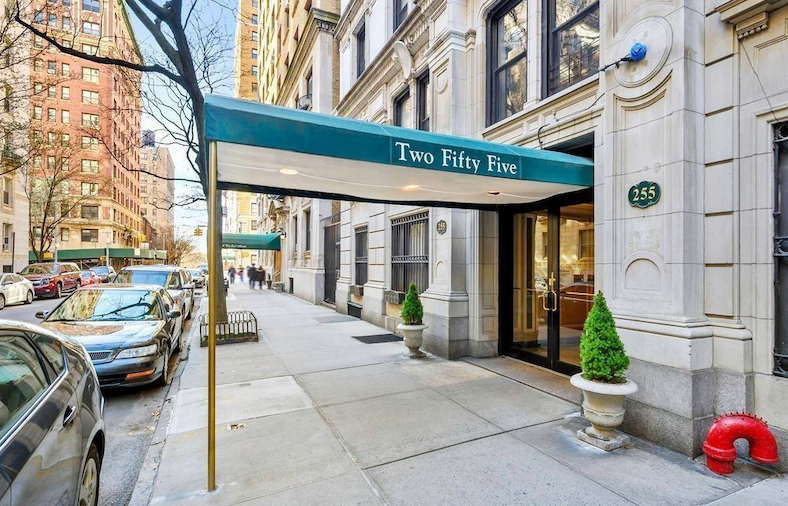
Question: My husband’s family has occupied a prewar, rent-controlled 3-bedroom in the West 80s for 51 years. When his mother died in 2012, my husband, a musician who travels for work, took over the apartment as his primary residence. I moved in in 2013. We currently pay $850 a month. Three years ago, a property management company bought our apartment from the previous landlord and eight others for about $500,000 each and has been trying to evict us ever since. The new landlord wants to convert the apartments to co-ops and sell them. The other rent-controlled tenants are all in their 70s and 80s and don’t intend to move ever. We have already spent $30,000 fighting the new landlord, and the legal bills are killing us. We’re willing to consider a buyout, but what’s reasonable? The new landlord has offered as much as $150,000, but that seems too low to us. What would be an acceptable offer?
—Weary and Worried on the Upper West Side
Dear W & W:
You are sitting on the real estate dream of all true New Yorkers — paying under $1,000 a month for a huge, rent-controlled, family-size apartment in one of the best Manhattan neighborhoods. No wonder you don’t want to leave, and your landlord wants to get you out.
Your place is one of only about 27,000 old rent-controlled apartments remaining in the city. Most are occupied by elderly tenants, like your neighbors. As you know, one of the biggest differences between rent-controlled and the more common rent-stabilized apartments is that you can pass a rent-controlled apartment on to a relative, a spouse or a significant other who lives with you. The apartment must be a primary residence, which your landlord is contesting based on your husband’s travels.
Every situation is different, but generally, for an apartment in your building in your neighborhood, I can’t imagine any reasonable offer that’s less than one-fourth to one-third of the price the landlord would expect to get selling the renovated apartment. The most recent sales in your building [i] have been running about $1,200 per square foot, which would make your place worth about $1.5 million. So your range should be $375,000 to $500,000.
Another way of computing the value of the apartment is from its income-generating potential as a landlord. What would be the market rent on your apartment if it were renovated? I found 26 three-bedroom apartments for rent in large, staffed buildings on the West Side between 79th Street and 96th Street. Throwing out the three most expensive and the three least expensive apartments, the average asking rent is $9,700. Average maintenance in your neighborhood is around $2,600.
Rental properties are valued by their capitalization or “cap” rate — which is based on the price paid for a property and its annual operating income (rent minus expenses). It’s basically a landlord’s annual return on investment. At the current Manhattan average cap rate of 3.8 percent, your apartment as a market-rate rental property is worth about $2.25 million.
So let’s split the difference between the two valuations and come up with $1.875 million as the value of your apartment. Following the one-fourth to one-third rule of thumb, that makes $470,000 to $625,000 a good range for a reasonable buyout offer.
An important, final note: Your landlord is playing some serious legal hardball. They have plenty of incentive to drag you through the court until you give up or you’re broke. Their legal fees probably aren’t nearly as high as these buyout figures. And unlike a typical co-op sponsor who has held a property for many years and depreciated it, your landlord has a relatively new $500,000 investment that makes it harder for them to see a big profit if they have to pay a substantial sum to get you out.
Your best route may be to have your attorney make the most advantageous deal for you as possible. Make it clear that you are willing to entertain a reasonable offer — which in this case may well be less than the ranges I’ve suggested here — along with taxes, legal fees, relocation assistance and moving expenses.
Your husband and his family have enjoyed the benefits of 51 years of rent control, 51 years that have seen the Upper West Side evolve from a drug-scourged, gang-infested combat zone into the pinnacle of civility. It may be time to move on. Good luck.
[i] The exact address of the building has been withheld for privacy reasons, but was used to ascertain the price per square foot and other comps data for this piece.
David Crook is a veteran journalist and author of The Complete Wall Street Journal Real-Estate Investing and Homeowner’s Guidebooks. Do you have a question about anything real estate-related in NYC? Write him at askus@streeteasy.com. For verification purposes, please include your name and a phone number; neither will be published. Note: Nothing in this column should be considered professional legal advice. If you have a legal issue, consult an attorney.
—
Hey, why not like StreetEasy on Facebook and follow @streeteasy on Instagram?








